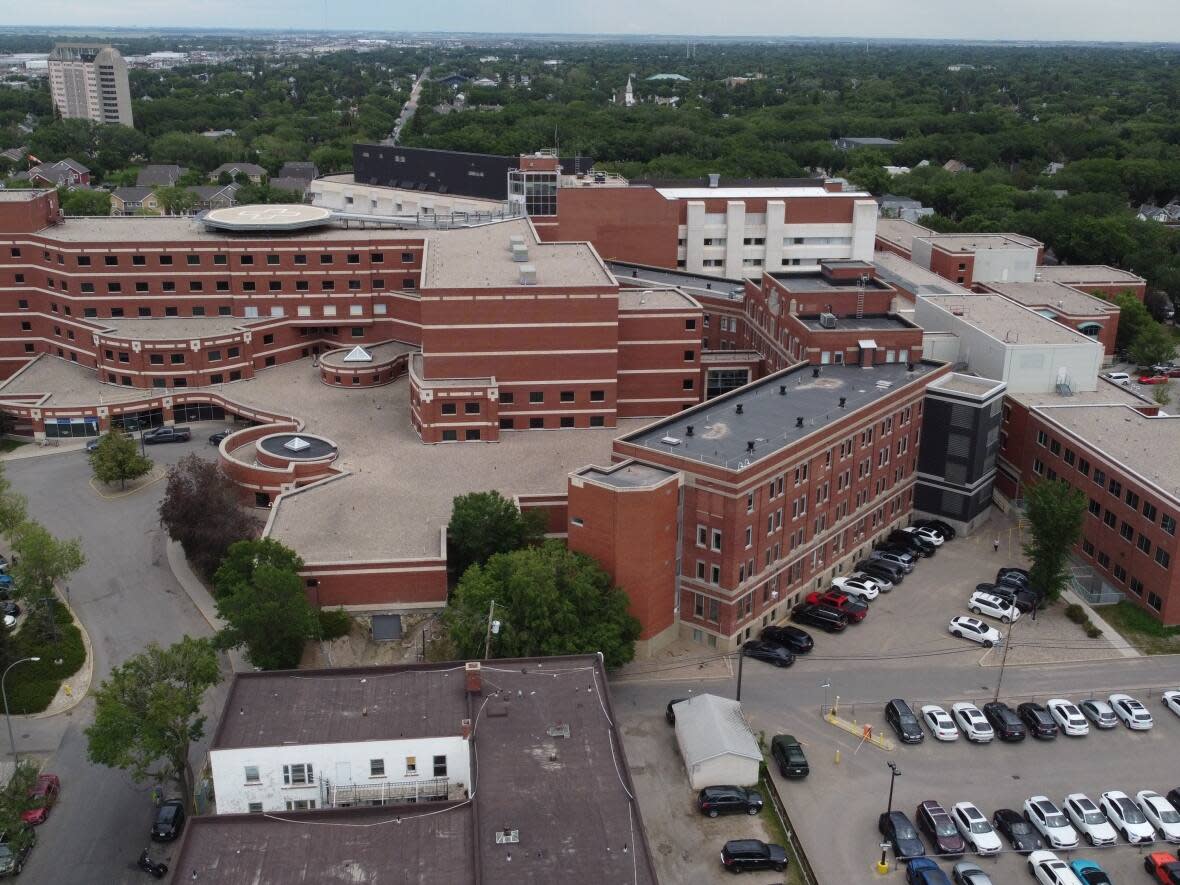Sask. lab service disruptions caused by staffing shortages could get worse, industry advocate warns

A significant number of disruptions at Saskatchewan hospitals are linked to laboratory services in the province's medical centres, according to online information from the provincial health authority, and one industry advocate says staff shortages are to blame.
The problem isn't new, according to Christine Nielsen, the CEO of the Canadian Society for Medical Laboratory Science — the national professional society and certifying body for Canada's medical laboratory professionals.
However, very little has been done by provincial governments to deal with the problem, and the COVID-19 pandemic has exacerbated the issue, she said.
"For a decade, we've seen what's coming," Nielsen said in an interview this week.
Without intervention, it's an issue that could get even worse in years to come in Saskatchewan, she said.

The Saskatchewan Health Authority posts a list of active service disruptions online. Those disruptions can include things like temporary changes to emergency room or acute case services, or changes to the availability of lab services.
The number can fluctuate over the course of a week, or even a day. For instance, there were 32 service disruptions as Monday afternoon. By Tuesday, the number had grown to 36.
On Monday the number of service disruptions related to lab services was 29, or 90 per cent of the total disruptions in the province at that time.
Some were long-term disruptions or notifications that services were unavailable, but many were notices that laboratory services would only be available through appointment.
The disruptions are spread throughout the province. While laboratory services in Regina and Saskatoon hospitals are among the notifications posted online, disruptions in remote and rural parts of Saskatchewan have caused anger and even protests.
Pandemic pressure on lab testing
Laboratory testing was one of the most important tools during the depths of the COVID-19 pandemic. At its peak, Saskatchewan reported processing 9,829 COVID-19 tests in a 24-hour period.
However, that kind of testing put strain on medical laboratory technologists, who were forced to pull back on other responsibilities in order to process COVID-19 PCR tests.
"It was a lot of pressure for the technologist and the lab assistant working in community, too, because these are our neighbours, these are our family members, these are our co-workers and our colleagues," said Nielsen.
"To call it stressful would be to minimize it."
While that strain has lessened, the mental and physical burnout remains an issue that has yet to be resolved. Nielsen says technologists in the province are still working for long stretches of time.
That's caused by staff shortages, she said.
A mathematics problem
CBC requested comment from the Saskatchewan Health Authority on Tuesday and information about staffing, but has not yet received a response.
However, data provided by Nielsen's organization shows that in 2020, it had 778 practising members in the province. That number had decreased to 739 by this year.
That leads to another part of the equation in Saskatchewan.
Nielsen says that 85 of the organization's medical laboratory technologists working in Saskatchewan are between the ages of 60 and 69 — the prime age for retirement. Even those who are younger may be looking to retire earlier due to the stresses of the pandemic, she said.
But the number of students graduating from Saskatchewan Polytechnic's two-and-a-half-year medical laboratory technologist program may not be able to adequately replace the number professionals lost to retirement.
Only 40 students are accepted into the program every year, according to Saskatchewan Polytechnic.
Nielsen is calling for the program to be expanded, and more people admitted in order to combat the attrition.
She also suggests opening a second program site in rural Saskatchewan in an attempt recruit individuals who are interested in staying in those communities, which face the biggest challenges.
"The shortages we're now seeing in our dense urban areas like Toronto, Montreal, Vancouver — you know, that happened in the rural sites 10 years ago," she said.
The SHA's own public postings show a desire to hire more people trained in laboratory technology.
As of Wednesday afternoon, there were 38 job postings in Saskatchewan for medical laboratory technologists and medical laboratory assistants.
Those are just the positions regulated by the Canadian Society for Medical Laboratory Science, and don't include positions like combined laboratory and x-ray technologists.
There are currently 54 positions being advertised with that title.


